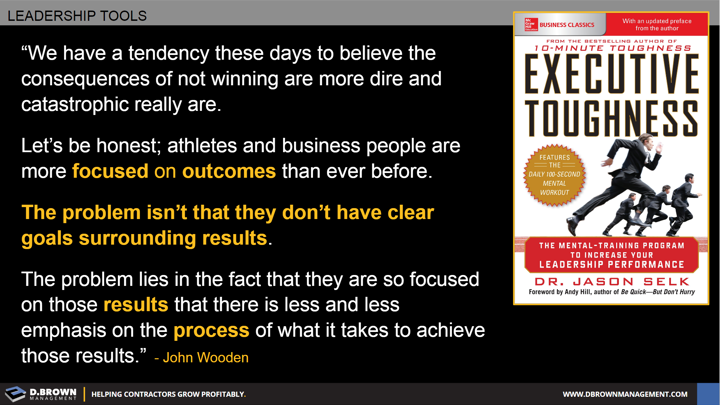While these are the most visible and exciting parts of the story, they represent a very small part of the whole picture.
Whether in the military, sports, or business, few failures can truly be attributed to a failure of strategy or the team really not wanting to win bad enough. The book Executive Toughness describes this well.
Consistently winning comes from rigorous and daily practice of hundreds of details over years.
The reason behind many of these details will be completely misunderstood by those going through it the first time.
Craig Mullaney describes this very well in The Unforgiving Minute: A Soldier’s Education.
A great coach (or manager) has the stamina to stick with the rigorous training, providing small corrections to the process along the way.
Think of a contracting business like you would a project. Consider a few major outcomes on your scoreboard.
Which one are you the most unhappy with?
Drill-down on that outcome metric until you have the equivalent of a Work Breakdown Structure (WBS) and can see the Critical Path.

